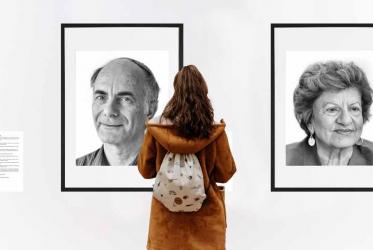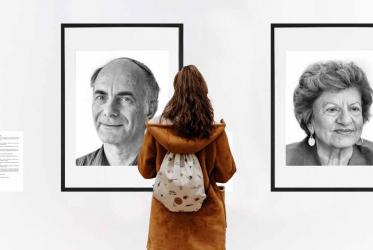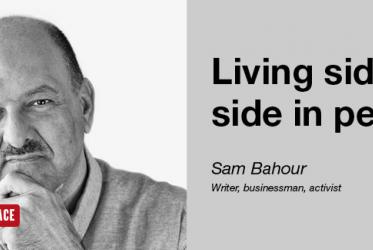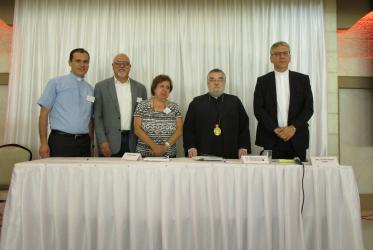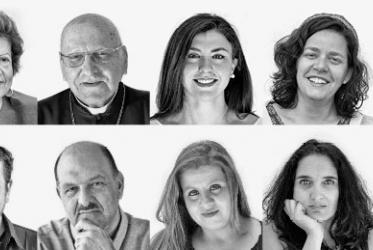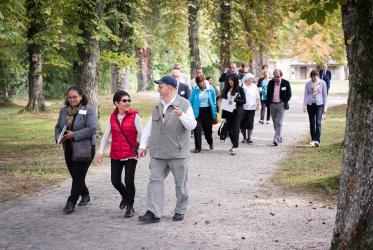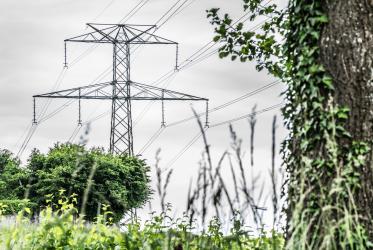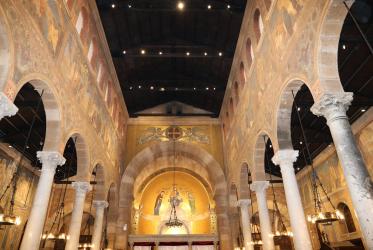Displaying 41 - 60 of 132
Exhibition of hope for the Holy Land opens in Geneva
13 September 2017
Faces of hope and moments of justice and peace
25 July 2017
WCC students study what makes a peace communicator
18 July 2017
WCC condemns attack in Jerusalem
14 July 2017
WCC seeks #JusticeAndPeace in the Holy Land
20 June 2017
